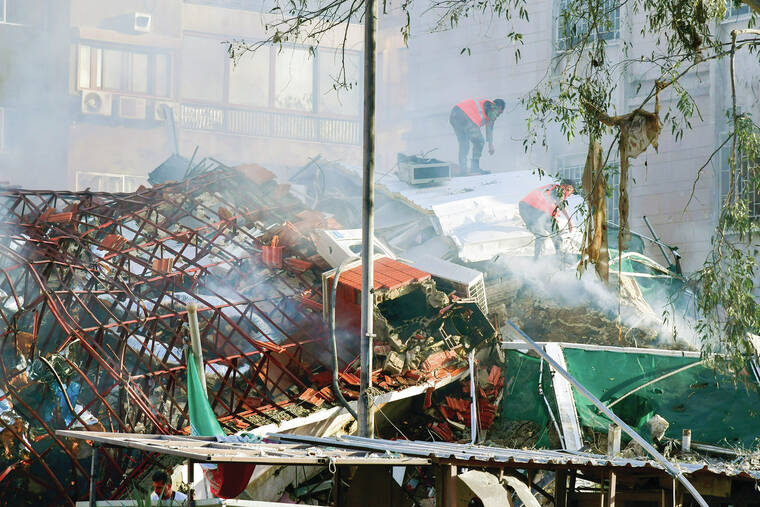US braces for retaliation after attack on Iran consulate — even as it says it wasn’t involved
Shortly after an airstrike widely attributed to Israel destroyed an Iranian consulate building in Syria, the United States had an urgent message for Iran: We had nothing to do with it.
But that may not be enough for the U.S. to avoid retaliation targeting its forces in the region. A top U.S. commander warned on Wednesday of danger to American troops.
ADVERTISING
And if Israeli Prime Minister Benjamin Netanyahu’s recent broadening of targeted strikes on adversaries around the region to include Iranian security operatives and leaders deepens regional hostilities, analysts say, it’s not clear the United States can avoid being pulled into deeper regional conflict as well.
The Biden administration insists it had no advance knowledge of the airstrike Monday. But the United States is closely tied to Israel’s military regardless. The U.S. remains Israel’s indispensable ally and unstinting supplier of weapons, responsible for some 70% of Israeli weapon imports and an estimated 15% of Israel’s defense budget. That includes providing the kind of advanced aircraft and munitions that appear to have been employed in the attack.
Israel hasn’t acknowledged a role in the airstrike, but Pentagon spokeswoman Sabrina Singh said Tuesday that the U.S. has assessed Israel was responsible.
On Wednesday in Washington, the top U.S. Air Force commander for the Middle East, Lt. Gen. Alexus Grynkewich, said Iran’s assertion that the U.S. bears responsibility for Israeli actions could bring an end to a pause in militia attacks on U.S. forces that has lasted since early February.
He said he sees no specific threat to U.S. troops right now, but “I am concerned because of the Iranian rhetoric talking about the U.S., that there could be a risk to our forces.”
U.S. officials have recorded more than 150 attacks by Iran-backed militias in Iraq and Syria on U.S. forces at bases in those countries since war between Hamas and Israel began on Oct. 7.
Grynkewich told reporters the U.S. is watching and listening carefully to what Iran is saying and doing to evaluate how Tehran might respond.
Ultimately, Iran’s sense that it is already winning its strategic goals as the Hamas-Israel war continues — elevating the Palestinian cause and costing Israel friends globally — may go the furthest in persuading Iranian leaders not to risk open warfare with Israel or U.S. in whatever response they make to Monday’s airstrike, analysts and diplomats say.


